Wild Muscovys Live at the Pond
Wild Muscovy ducks, Cairina moschata, appeared at the Pond some years ago—seven of them as I remember. Males and females. We were fascinated by their long, sharp claws which let them grasp a tree limb or the back of the bench and the bright red, warty skin on their faces. They would sit on the bench or near the water’s edge, wag their tails and communicate with a lot of head bobbing, beak snapping and hissing. They ate every bug large and small and mosquito larvae from all the puddles. It wasn’t long until you could sit on the bench beside the pond and never see a flying insect; not a gnat or a fly or a mosquito. Agile fliers with large wingspans, Muscovys are exciting to watch in the air. In the evening, just before roosting for the night, one big male duck would make several laps low over the pond. We decided he was looking to see whether an alligator had slipped in unnoticed. During the night one or two ducks would stand a watch while the others slept, then sleep a while and let others keep watch.
We were happy the Muscovys stayed at Vista Farm, but so were the coyotes and several ducks were lost in the first year. The population ebbed and flowed through the years. Clutches of eggs, sometimes as many as 20 were laid each season, but only two or three hatchlings would survive to become adults. I couldn’t figure out what was eating them. I scoffed at the Captain’s suggestion that the Great Blue Heron could be one culprit until I did the research and, sure enough, baby duck is one of the heron’s favorite foods. The bass got a few babies, alligators, raccoons, hawks and coyotes took others, some grew up and flew away to another pond.
A Little Black Hen
This summer we have five Muscovys—two males and three females. One little black hen laid a dozen eggs on the floor of an old jeep under the steering wheel. It was a junker and we had left the windows down. For some reason Muscovy’s LOVE exploring the inside of a car. If the hood is up they look for bugs and will fly inside the jeep, the truck, the 4Runner, every motorized thing on the place at every opportunity.
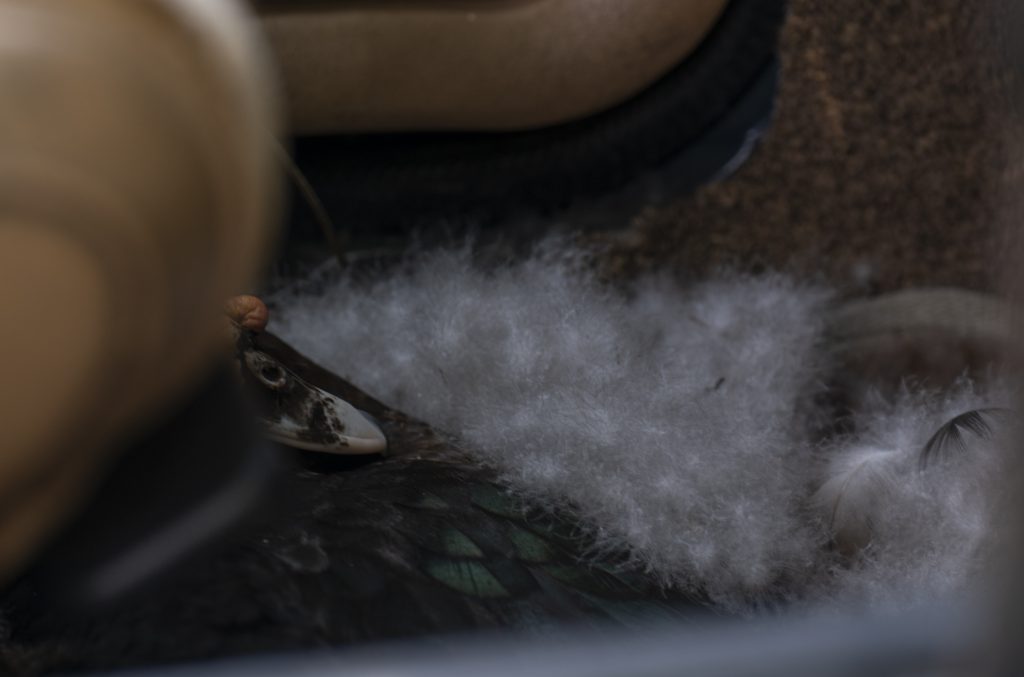
So a little black hen decided it was a good place to build her first nest. She started sitting on her eggs around July 20th. She covered them with her own fluffy down and rarely leaves them for more than a few minutes to grab some food and water. Two other hens we call her Ya-Ya sisters.
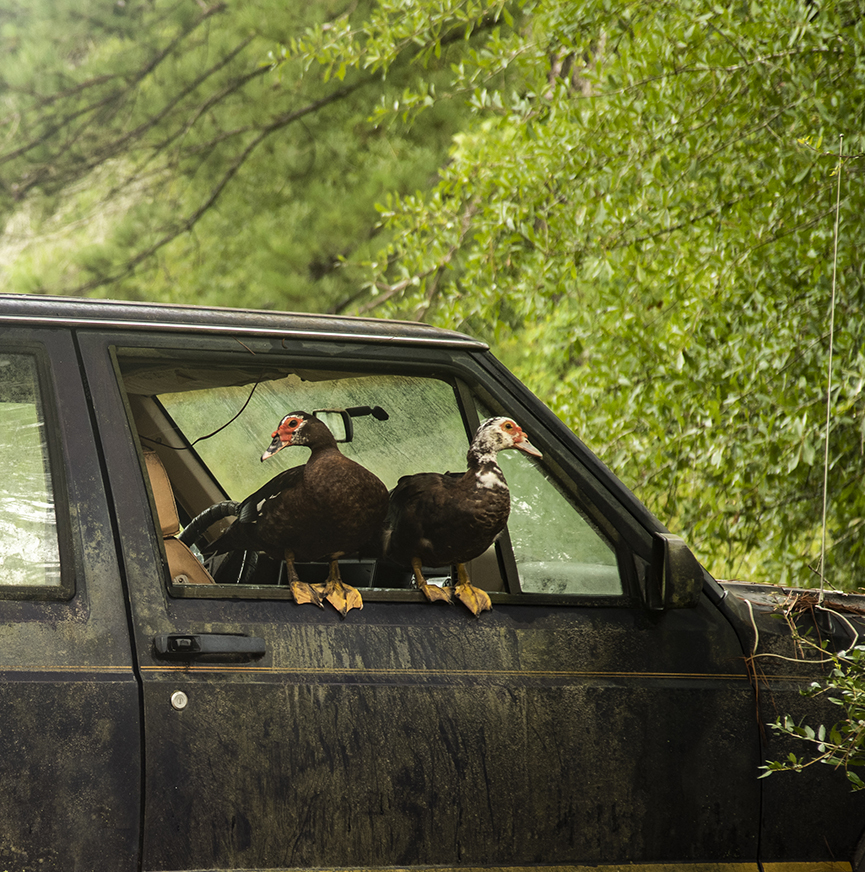
They perch on the back of the seat or in the open window watching and softly communicating with the little mother-to-be. In 35 days the eggs should hatch. I wonder how she plans to get the babies out of the jeep.
Stay tuned . . .

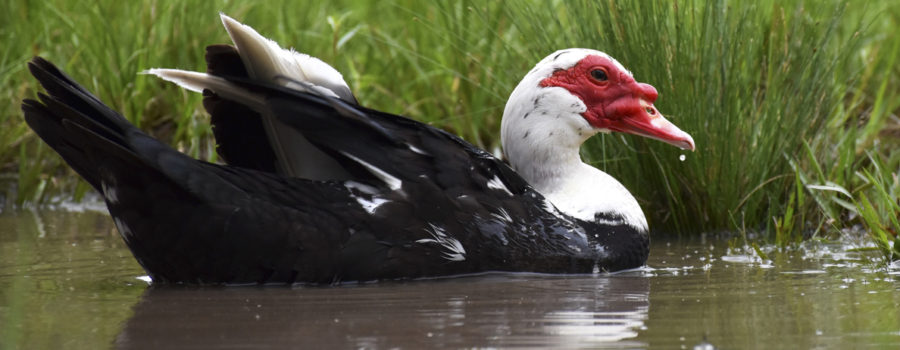
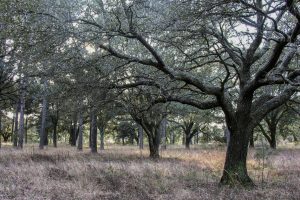
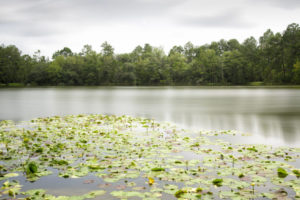
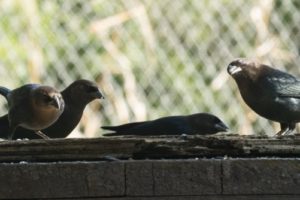
Recent Comments